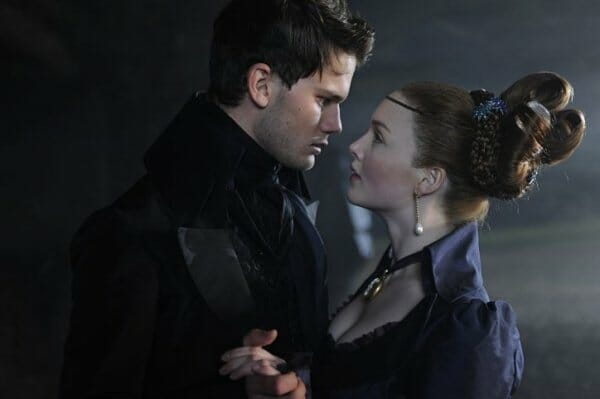
There is always the risk when filmmakers take on a literary classic that universal familiarity will leave things a little stale. As a cardinal rule, it should not be attempted if the adaptation has nothing new to say. Unfortunately, Mike Newell’s take on Charles Dickens’ Great Expectations, one of the most famous novels of the nineteenth century, falls into precisely this trap. It is an astonishingly polite rendering of a story everyone knows and, ironically, the biggest problem is that Newell gives us exactly what we are expecting.
The issue this modern adaptation faces is creating depth in a film that must be so conscious of artifice. Dickens’ Pip is sensitive but spoilt—a toned-down precursor to Dorian Gray—but Jeremy Irvine plays him as a bit of a blank slate, with a few tantrums thrown in along the way. In fact, most of the cast seem to be hindered by the historical weight of their characters.The idea of Magwitch, the escaped convict who becomes Pip’s mysterious benefactor, overcomes the human color that Ralph Fiennes can add. The idea of Estella, the haughty ice queen raised by Miss Havisham to break men’s hearts, remains an aspiration rather than a realization for Holliday Granger. That’s not to say the performances are poor; rather, the actors pledge such fidelity to the images their roles conjure that they forget to dig beneath the surface to release something new.
One of the reasons Great Expectations is such a difficult text to adapt is that it has an undercurrent of strangeness absent from some of Dickens’ other well-known works. Certainly, it shares some of the melodrama and rich characterization of A Tale Of Two Cities, but it lacks the bloody, beating heart of its revolutionary counterpart. There is a core of decay at its centre: the rotting, dust-choked quarters of Satis House provide the real framework for the text. As a novel, it belongs to Miss Havisham, and it is in the gloomy stasis of her abode that the tale is at its most unnervingly hypnotic.
On paper, Helena Bonham Carter was born to play this role. No one delivers eccentricity quite like her: each quirky tick borders on a fiery madness. But in this film she is curiously subdued. Something is missing from her portrayal of the jilted bride tormented by grief, who uses her daughter to exact a twisted revenge. Perhaps the desperate sadness of Dickens’ disintegrating spinster cannot be recreated without the bewitching knottiness of his prose. On the screen, Miss Havisham is a disappointingly flat figure, hidden beneath the voluminous lace of her costume.
That said, the film is aesthetically captivating: beautifully shot and designed. A palette of deep blues and grey composes the gothic world of Satis House, whilst the stark rural setting of Pip’s childhood is shot in all its bracing remoteness. There are also some entertaining supporting performances from minor characters who can get away with caricature. David Walliams, for instance, provides some much needed comic relief as Mr Pumblechook. But these occasional sparks are not quite enough to compensate for the pervasive staleness of the piece. Whilst the novel may deal with the nature of mourning and loss, it presents its decaying subject with Dickens’ characteristic vigor, every sentence crackling with energy. This remake is the victim of its own loyalty, forgetting that the confounding of expectation is what brought the story to life in the first place.
Director: Mike Newell
Writer: David Nicholls
Starring: Jeremy Irvine, Holliday Granger, Helena Bonham Carter, Ralph Fiennes, Robbie Coltrane, Sally Hawkins, Jason Flemyng, Ewen Bremen, David Walliams, Olly Alexander
Release Date: Nov. 8, 2013